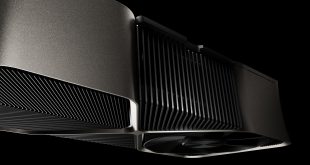SAPPHIRE Technology has just announced that purchasers* of the recently launched SAPPHIRE HD 7790 OC and standard models will be entitled to a free installation code for the exciting new game BioShock Infinite, which just launched to rave reviews.
Software developers at Irrational Games collaborated extensively with AMD to make the PC version of BioShock Infinite the definitive experience for gamers. BioShock Infinite is the first in the series to implement a DirectX® 11 graphics engine, which fundamentally offers state-of-the-art rendering in a series already famous for its beauty. Some of these effects make this fabulous game a perfect fit for the capabilities of AMD’s Graphics Core Next (GCN) architecture at the heart of the SAPPHIRE HD 7790 and other members of the SAPPHIRE HD 7000 series.
Many of the new techniques enhance the appearance and reality of scenes and objects in the game. Diffusion Depth of Field is a technique designed to simulate the focal length of a camera or human eye, both of which naturally blur objects not in focus from the perspective of the viewer. For example, focusing on a hand in front of your face will cause objects behind your hand to blur, and that blurring increases in intensity with objects of an increasing distance from you.
But the new effect isn’t merely a simple blur applied to the scene beyond your focus. It uses a complex series of differential equations that intelligently blurs objects with respect to distance from the viewer and location in the player’s field of view. This effect is immediately noticeable (and beautiful) at many points throughout the game.
Making shadows look realistic is another challenge for programmers. The new Contact Hardening Shadows feature computes the average distance of a shadow pixel from the object casting a shadow, then uses that calculation to control how hard or soft the edges of a shadow should be as they move away from the source. This technique closely mimics a shadow you might cast in the real world, which would be more “solid” in appearance closer to your body.
High definition ambient occlusion, developed by AMD software engineers, is enabled in BioShock Infinite to more realistically render the shadows seen when two objects are placed close to one another.
This technique accomplishes this first by collecting all of the visual information from the player’s view of the game world, then by assessing all of the angles, pits and valleys present in that view. Using the compute capabilities of the Graphics Core Next architecture, BioShock Infinite then instructs the graphics card to increase or decrease the brightness of an area based on the analysis of those angles and valleys.
In the real world, ambient occlusion can be seen in the shadows between logs piled in a stack, or between the wrinkles in a fabric. Even in direct light, it is still possible for shadows to be generated in these instances, so this is another subtle but important technique to improve realism.
Playing games on multiple monitors is becoming increasingly popular, and the SAPPHIRE HD 7790 series supports the AMD Eyefinity SLS (Single Large Surface) mode with three low cost digital monitors from its DVI and HDMI ports, without the need for a DisplayPort monitor or additional active adapter.
BioShock Infinite has been extensively optimized for the panoramic gaming capabilities offered by AMD Eyefinity. It delivers an excellent experience on the supported modes of the HD 7790 including 3×1 portrait and 3×1 landscape, as well as a 3×2 landscape mode with higher performance cards in the HD 7000 series.
SAPPHIRE HD 7790 OC and HD 7790 standard editions are shipping now, and available to purchase from April 2nd.
Source: Press Release
 KitGuru KitGuru.net – Tech News | Hardware News | Hardware Reviews | IOS | Mobile | Gaming | Graphics Cards
KitGuru KitGuru.net – Tech News | Hardware News | Hardware Reviews | IOS | Mobile | Gaming | Graphics Cards



